Can DPP's new chair William Lai win the Taiwanese presidential election in 2024?
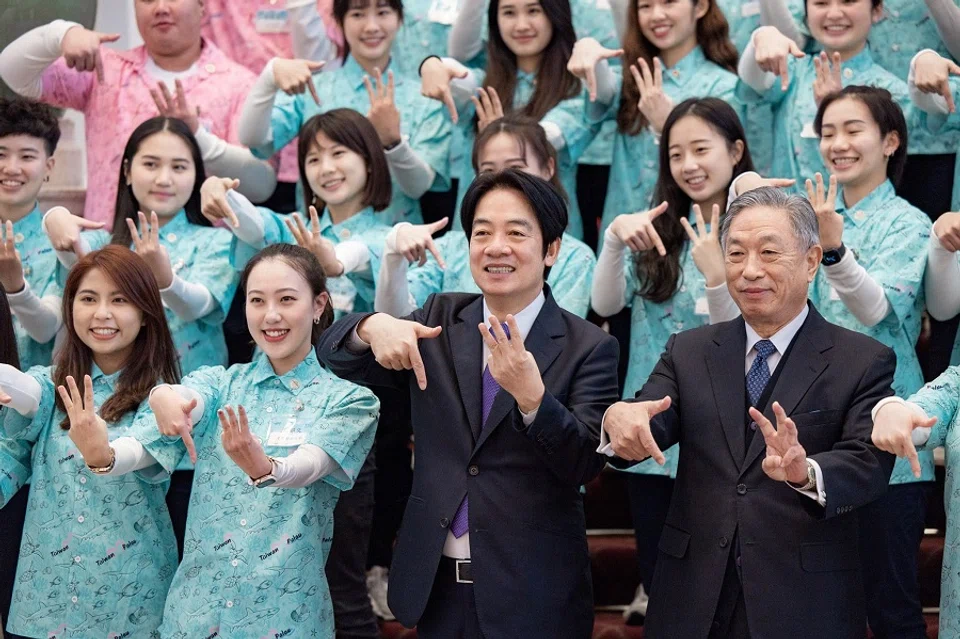
Following the ruling Democratic Progressive Party (DPP)'s crushing defeat in the local elections in November 2022, Taiwan Vice-President William Lai Ching-te quickly became the most powerful politician of Taiwan's pan-Green camp, and could take on the presidency in 2024.
On 15 January, Lai was made DPP chair in an uncontested by-election after Taiwan President Tsai Ing-wen resigned from the position in November last year to accept responsibility for the party's disappointing election results.
The turnout for the election was only 17.59%, and Lai won 99.65% of the 41,989 votes. In a statement released through the party headquarters and Facebook, Lai said that the DPP would work on winning back people's trust. He would unite the party and re-establish the DPP as a party of "integrity, diligence and love for the island".
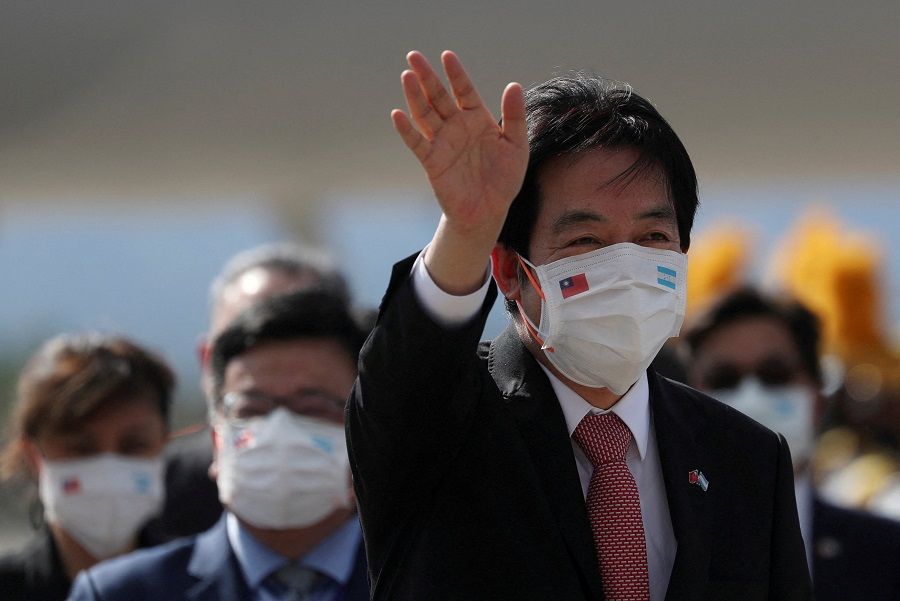
However, Lai's strong advocacy for "Taiwan independence" will continue to be a stumbling block to garnering more votes from the general Taiwanese public. In a bid to downplay his strong anti-China stance, Lai has championed the "peaceful protection of Taiwan" (和平保台) on numerous occasions over the past month. It remains to be seen whether his new rhetoric can maintain cross-strait peace and the DPP's regime.
... it had cost the party the support of young voters as the opposing Kuomintang (KMT) had countered it with the slogan "vote for the DPP and our youths will go to war".
DPP's shifting narrative
With the mission of leading the DPP out of the electoral doldrums, Lai embarked on an islandwide campaign tour to present his policy platform, starting from his birthplace of New Taipei City on 21 December 2022, where he listened to reform recommendations from grassroots officials.
The DPP played the "resist China, protect Taiwan" (抗中保台) card prominently during the later stages of the local elections. However, it had cost the party the support of young voters as the opposing Kuomintang (KMT) had countered it with the slogan "vote for the DPP and our youths will go to war".
Hence, Lai's repeated proposal of the "peaceful protection of Taiwan" during his campaign tour and the unanimous support it has garnered from other DPP leaders signal that the DPP's narrative on cross-strait relations is shifting.
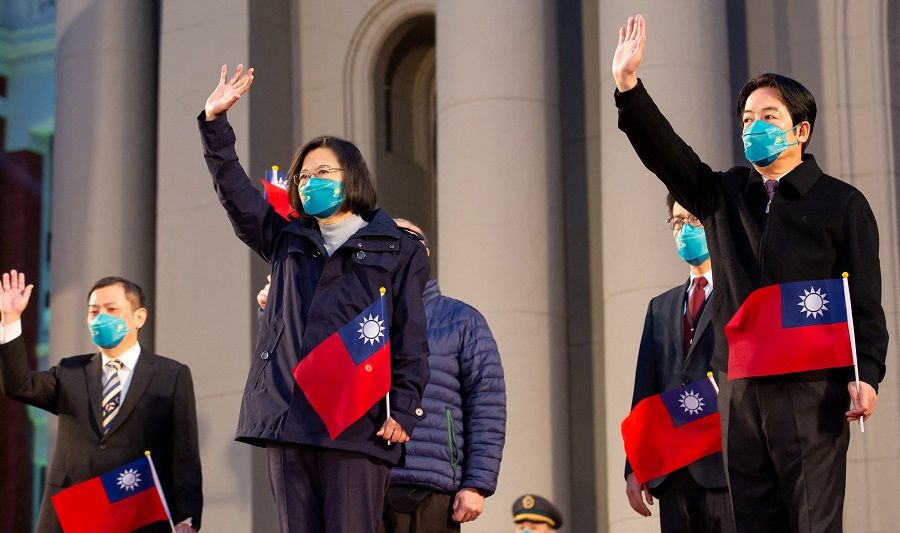
Lai explained that in the past, the purpose of rallying against the mainland and the Chinese Communist Party (CCP) was to protect Taiwan's peace. He asserted that Taiwan wants peace, especially with mainland China, but as long as the latter does not renounce the use of force for reunification, Taiwan must have the resolve to fight back.
Internal and external challenges
Lai once identified himself as a "pragmatic political worker for Taiwanese independence" and is also described as the "golden child of Taiwan independence" (台独金孙). In recent years, he shifted towards the middle ground and advocates the idea that Taiwan is already a de facto independent state called the "Republic of China". Hence, there is no need to declare de jure independence.
He had also proposed a "pro-China, love Taiwan" (亲中爱台) stance, which was interpreted as an insistence on the "one China, one Taiwan" (一中一台) concept. This made it very difficult to establish any mutual trust with the CCP, which stands firm on cross-strait reunification.
Meanwhile, the KMT was quick to call out Lai's "peaceful protection of Taiwan" proposal as akin to "burning incense and worshipping with the KMT", that is, following the KMT's footsteps.
Chao Shao-kang, a self-proclaimed "Blue fighter", pointed out that if the DPP clings to its "Taiwan independence" party platform and anti-China stance, and yet demands peace, it would be behaving like "a scumbag demanding loyalty from girls".
... the public believes that the two most daunting challenges for Lai are whether he has the ability to clamp down on underworld politics and persuade the people that the DPP is capable of maintaining cross-strait peace.
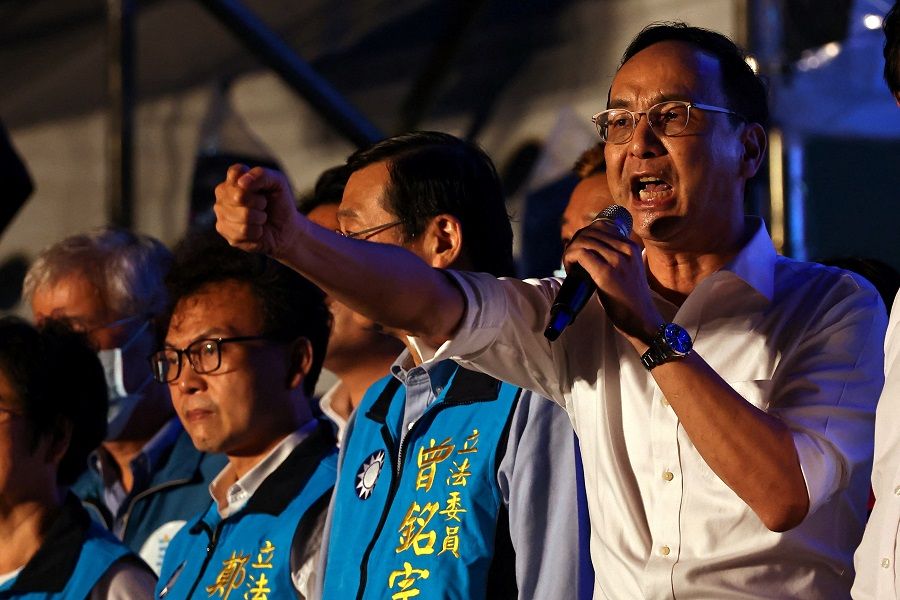
KMT chair Eric Chu Li-luan said that, after shouting anti-China slogans for so long, the DPP has finally come to its senses and realised that the KMT's path is the correct one.
Troubled by internal and external challenges, the DPP has recently fallen into a slump. Internally, it has to deal with "black gold" (黑金, heijin), referring to political corruption, underworld politics and political violence. This has degraded the pan-Green camp's governance model for "integrity, diligence and love for the island", into that of "black gold, election bribery and construction fraud". Externally, officials from both sides of the Taiwan Strait have not met for seven years and tensions have escalated as Taiwan developed close political and military exchanges with the US.
Addressing the island's domestic political challenges, the self-proclaimed prudent and principled Lai expressed his abomination of "black gold" and asserted that perpetrators must be punished. Indeed, the public believes that the two most daunting challenges for Lai are whether he has the ability to clamp down on underworld politics and persuade the people that the DPP is capable of maintaining cross-strait peace.
Not giving up on 'resisting China'
Political commentator and former chair of Taiwan's Central News Agency Chen Kuohsiang told Zaobao that Lai's proposal for the "peaceful protection of Taiwan" will do little to assure young and median voters as its "desire for peace does not come with a viable solution for achieving peace".
Chen explained that the escalating tensions in the Taiwan Strait have fractured the younger generation's support for the DPP, thus significantly affecting the DPP's chances of continuing its regime.
Chen believes that Lai has not given up on the "resist China" rhetoric, but merely adopted a more peaceful tone. Since August last year, after a Taiwan Strait crisis was triggered due to then US House Speaker Nancy Pelosi's visit, the Taiwanese people have started to question whether the DPP's "resist China" rhetoric is conducive to protecting Taiwan.
Chen explained that the escalating tensions in the Taiwan Strait have fractured the younger generation's support for the DPP, thus significantly affecting the DPP's chances of continuing its regime.
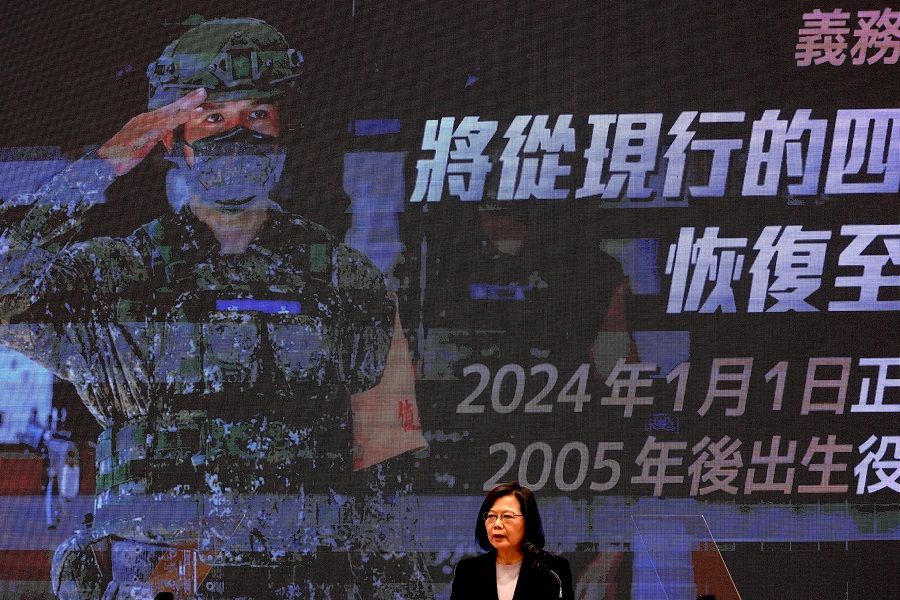
Take for example the extension of Taiwan's mandatory military service from four months to one year starting in 2024, Chen said that the young people who bear the brunt of the extension may realise that they could be deployed to defend the island and face the CCP's People's Liberation Army. They are now reflecting if they have become victims of the DPP's radical cross-strait policies.
They are worried that if war breaks out in the Taiwan Strait, a struggling Taiwan would see a bloodbath as it waits for assistance.
Chen noted that details of US-Taiwan military and political exchanges have also come to light recently, including the possible sale of Volcano anti-tank mine-laying systems to Taiwan and the establishment of a fellowship programme that allows Americans to work in Taiwan's legislative or executive offices to supervise the military. He said that these could diminish the Taiwanese's trust in the US, and in turn, the DPP. In particular, people are concerned that the US is transforming Taiwan into a "porcupine" or "another Ukraine" by arming the island in order to restrain and bring down the CCP.
They are worried that if war breaks out in the Taiwan Strait, a struggling Taiwan would see a bloodbath as it waits for assistance. Meanwhile, the US would exert pressure on the sidelines without setting foot on the island to defend it.
KMT infighting will only benefit the DPP
Lai and the DPP are also facing tough challenges from the KMT as the latter gathers momentum and strengthens its unity. But Chen pointed out that there are still huge gaps between the deep-Blue faction of the KMT and the general public in Taiwan. If the KMT cannot agree on a presidential candidate and conflicts arise as a result, the party's infighting will benefit the DPP.
Professor You Ying-lung, chair of the Taiwan Public Opinion Foundation and an expert on the Taiwan elections, told Zaobao that "resist China, protect Taiwan" is synonymous with Tsai as she had heavily promoted the stance to win her second term in 2020.
... the KMT's stance on cross-strait relations has raised concerns among the Taiwanese, who believe that the party is dancing to Beijing's reunification tune, which would ultimately lead to the island's surrender and annexation.
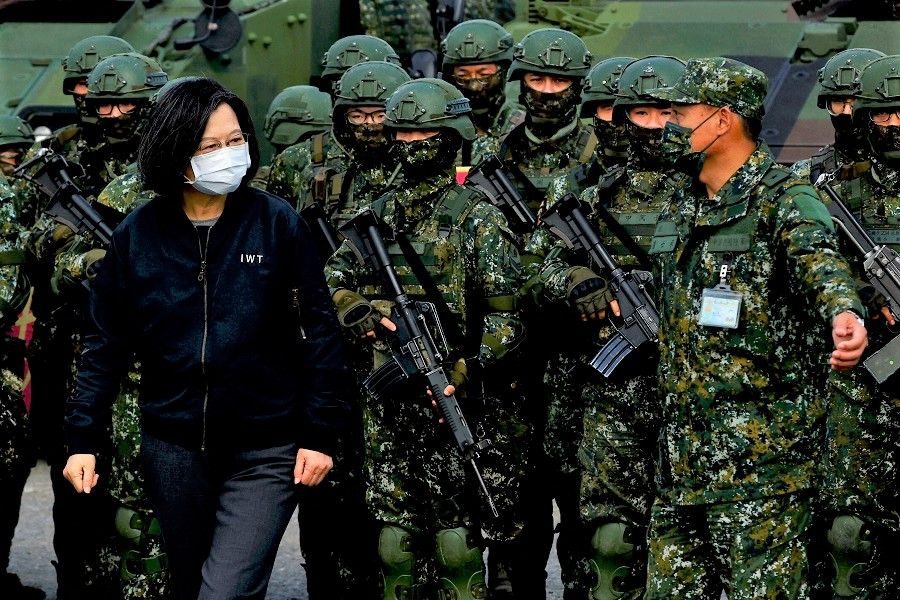
He said that Lai's proposal of a "peaceful protection of Taiwan" signals his attempt to adjust Taiwan's stance towards the mainland and to carve out a path for himself, or shape his own version of the cross-strait policy. However, he must substantiate his new proposal; otherwise, it might be treated as empty talk.
You added that the overall political climate in Taiwan is still unfavourable to the KMT, and questioned the KMT's audacity in highlighting cross-strait relations in the coming presidential elections. Nonetheless, he believes that the central issues of the presidential race are still too early to tell for now and will only become clearer in June.
However, several commentators have pointed out that the KMT's stance on cross-strait relations has raised concerns among the Taiwanese, who believe that the party is dancing to Beijing's reunification tune, which would ultimately lead to the island's surrender and annexation.
It seems that whoever manages to convince voters that they can eventually achieve the peaceful protection of Taiwan will hold the key to winning the presidential elections in January 2024.
This article was first published in Lianhe Zaobao as "分析:两岸论述只有目标没有方案 赖清德"和平保台"恐保不了民进党".
Related: 'Resist China, protect Taiwan' becoming a consensus in Taiwan | Taiwan's 2024 presidential race takes shape | DPP's anti-China card has failed to work in Taiwan's local elections | Taiwan's local elections: Voter fatigue over thesis plagiarism tussle | Taiwan's mayoral race will impact 2024 presidential election
